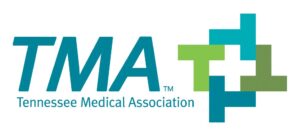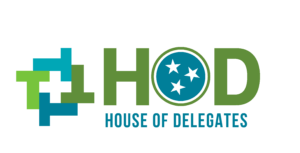
National Multiethnic Donor Awareness Month (August) is a collaborative effort by the National Organ, Eye and Tissue Donation Multicultural Action Group to save and improve the quality of life of diverse communities by creating a positive culture for organ and tissue donation. National Multiethnic Donor Awareness Month stems from National Minority Donor Awareness Week, founded in 1996 by the National Minority Organ Tissue Transplant Education Program (MOTTEP), to bring heightened awareness to health disparities, and organ donation and transplantation’s impact in minority communities.
Our voices are united to address the number one problem in transplantation: the gap between the demand for organ transplants and supply of donated organs. The waiting list currently stands at more than 100,000 with more than 60% representing racial and ethnic minorities. Even though a record number of nearly 40,000 people, including more than 18,000 racial and ethnic minorities, received the gift of life in 2020, the gap remains staggeringly high. On average, 20 people die every day waiting for a transplant.1
For Naoshia Butler doing nothing is not an option. That philosophy has helped make Naoshia who she is today – a mother, a college graduate and a model of determination.
Naoshia said her story began by falling in love. In 2016 Naoshia gave birth to her son, Desmond Jr. She said she felt something was wrong during labor. She was coughing and had trouble breathing. Afterward she knew she needed to see a cardiologist and scheduled an appointment.
Her concerns were well founded. Before her appointment day arrived, Naoshia became ill. She was rushed to the hospital and diagnosed with congestive heart failure. Naoshia was only 22 and her son, just three weeks old.
Not long after her return home, Naoshia said she woke up feeling “weird.” She was taken to Baptist Heart Institute and the medical team delivered news no one wants to hear. Naoshia had suffered a heart attack, and her heart was functioning at only 20-25%. She needed a heart transplant.
Naoshia would spend the next several months in the hospital … with her laptop. Naoshia was not only a new mother; she was also a college student. “I couldn’t dwell on the negativity,” she said. “I had a son to live for.”
So, while Naoshia and the medical team fought for her life, Naoshia also worked to keep up with her class assignments and be a mother to Desmond Jr. Her health did force her to take some breaks in her studies, but she didn’t give up. It wasn’t in her nature to give up and do nothing.
Naoshia was back at home when she got THE CALL. A heart was available. “I felt all types of emotions,” she said.
Naoshia was transplanted the next day. That gift has allowed Naoshia to be an energetic mother to Desmond Jr., and in May, 2021 it allowed her to walk across the stage and accept her diploma from Southwest Community College where she earned a degree in criminal justice.
In addition to her other responsibilities, Naoshia is a Mid-South Transplant Foundation Ambassador. She became an Ambassador “to help people gain an understanding” about donation. As a heart recipient, Naoshia understands the impact of donation. The generous gift of donation saves lives and families like hers.
The need for donation and transplant is more pronounced in minority communities where disproportionately higher rates of diabetes, high blood pressure and heart disease contribute to organ failure, especially kidney failure. African Americans are three times more likely than White Americans to have kidney failure. Hispanics are 1.5 times more likely than non-Hispanics to have kidney failure.2
On average, African American/Black transplant candidates wait longer than non-Black transplant candidates for kidney, heart and lung transplants.3 These healthcare disparities are part of the need for National Multiethnic Donor Awareness Month education and outreach to help heal and save lives in our communities.
During National Multiethnic Donor Awareness Month, national organ donation organizations elevate the need for more organ and tissue donors within multicultural communities, provide donation education, encourage donor registration, and promote healthy living and disease prevention to decrease the need for transplantation. National Multiethnic Donor Awareness Month is another important effort to promote the positive messages that are necessary for minority communities to make the decision for organ and tissue donation.
National Multicultural Action Group partners consist of the American Association of Tissue Banks (AATB), Association for Multicultural Affairs in Transplantation (AMAT), Association of Organ Procurement Organizations (AOPO), Donate Life America (DLA), Eye Bank Association of America (EBAA), Health Resources and Services Administration (HRSA), National Minority Organ Tissue Transplant Education Program (MOTTEP) and National Kidney Foundation (NKF). Please use hashtag #NMDAM when sharing and supporting National Multiethnic Donor Awareness messages and information on social media. You can register your decision to be an organ, and tissue donor by visiting Mid-South Transplant Foundation (MSTF) at www.MidSouthTransplant.org. Flyers, web banner and social media images are available.
Mid-South Transplant Foundation is the federally designated Organ Procurement Organization (OPO) serving parts of western Tennessee, northern Mississippi and eastern Arkansas. For more than 40 years, MSTF continues to help facilitate the organ and tissue donation process between donor families and recipients and promotes awareness of donation through public and professional education. Our goal is to increase the number of registered organ and tissue donors so more lives can be saved while also ensuring donors’ end of life wishes are fulfilled.
1Data from Organ Procurement and Transplantation Network (OPTN) data as of June 22, 2021, https://optn.transplant.hrsa.gov/
2 National Kidney Foundation, as June 22, 2021, kidney.org
3 SRTR Risk Adjustment Model Documentation: Waiting List Models, accessed June 23, 2021, https://www.srtr.org/reports-tools/waiting-list/







